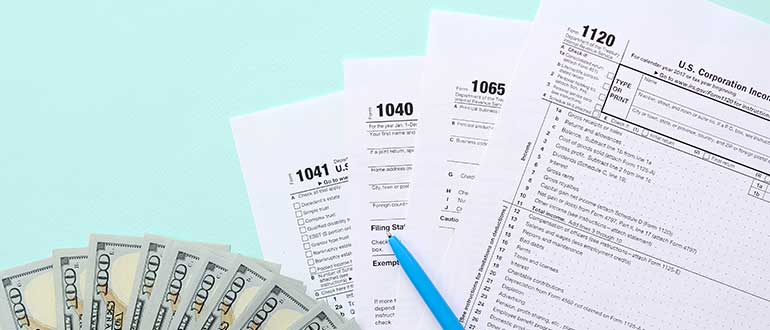
Form 1041 is the income tax return form that is used by trusts and estates to report their income, deductions, gains, and losses. As with any tax form, it is important to understand what expenses are deductible so that you can reduce your taxable income and potentially owe less in taxes. In this post, we will provide a comprehensive guide on Form 1041 deductible expenses.
Ordinary and Necessary Expenses
The first category of deductible expenses on Form 1041 is ordinary and necessary expenses. This includes expenses that are common and accepted in the trust or estate’s trade or business, as well as expenses that are helpful and appropriate to the trust or estate’s business. Examples of ordinary and necessary expenses include:
- Professional fees, such as fees paid to lawyers, accountants, and investment advisors
- Office expenses, such as rent, utilities, and office supplies
- Travel expenses, such as transportation, lodging, and meals
- Depreciation, which is the cost of a capital asset over its useful life
- Insurance premiums
- Taxes, such as property taxes and state income taxes
- Repairs and maintenance
Interest and Charitable Contributions
The next category of deductible expenses on Form 1041 is interest and charitable contributions. Interest paid on loans used to acquire property or to carry on a trade or business is generally deductible. Charitable contributions made by the trust or estate are also deductible, subject to certain limitations. The deduction for charitable contributions cannot exceed 50% of the trust or estate’s adjusted gross income.
Taxes and Distributions
Trusts and estates are subject to income tax, and they may also be subject to state and local taxes. These taxes are deductible on Form 1041. In addition, distributions made to beneficiaries are also deductible. However, distributions must be made in accordance with the terms of the trust or estate’s governing documents and applicable law.
Fiduciary Fees
Fees for the services of trustees and executors are allowed, and these costs are deducted on Form 1041. The charges must be fair and required for the services rendered. Additionally, it’s important to note that the fees paid to a fiduciary are considered taxable income to the recipient. The fiduciary must report the fees on their own tax return and pay any applicable taxes on the income. It’s also important to keep accurate records of the fees paid and the services provided in order to properly substantiate the deduction on Form 1041.
Losses
The sale or exchange of property, as well as other transactions, could result in losses for trusts and estates. On Form 1041, these losses are deductible. The total amount of losses that may be written off in a single tax year is nevertheless subject to a cap. It’s crucial to note that losses from the sale or exchange of property are generally considered capital losses, which are subject to different rules than ordinary losses. The amount of capital losses that can be deducted in a given tax year is limited to $3,000, but any excess losses can be carried forward to future tax years. Additionally, losses from transactions between related parties may be subject to additional limitations and restrictions.
Capital Gains and Losses
Trusts and estates may also incur capital gains and losses from the sale or exchange of capital assets. Capital gains are taxable, while capital losses are deductible. However, there are limitations on the amount of capital loss that can be deducted in a given tax year.
Administrative Expenses
In connection with the administration of the trust or estate, administrative costs may be incurred. On Form 1041, these expenses are deductible. Examples of administrative expenses include fees paid to attorneys and accountants for estate tax return preparation, costs associated with the sale of property, and fees paid to financial advisors.
Investment Expenses
Investment management costs may be incurred by trusts and estates that have investments. In general, Form 1041 allows for the deduction of these costs. Fees paid to investment advisors, custodial fees, and costs associated with investment research are a few examples of investment expenses.
State Death Taxes
If the estate is subject to state death taxes, those taxes may be deductible on Form 1041. However, the amount of the deduction is limited and varies depending on the state in which the estate is located.
Rental Expenses
In general, expenses associated with a rental property are deductible on Form 1041 if the trust or estate owns it. This covers costs for things like property taxes, property management fees, and repairs and maintenance.
Understanding the deductible expenses on Form 1041 is important for reducing the taxable income of trusts and estates. By carefully reviewing these expenses and ensuring that they are properly documented and substantiated, trusts and estates can potentially reduce their tax liability and keep more of their hard-earned income. If you have questions about the deductibility of specific expenses on Form 1041, it is always best to consult a qualified tax professional.
